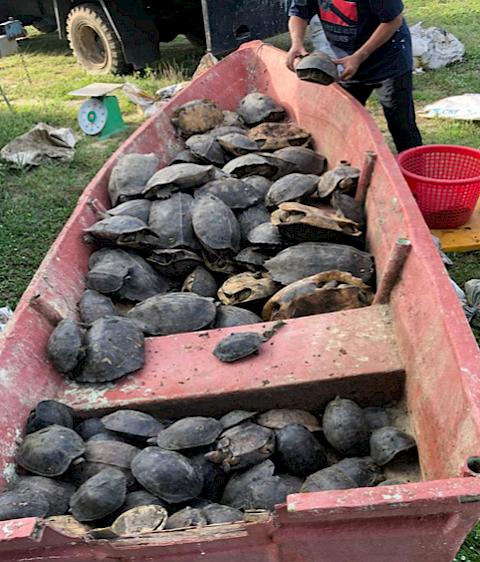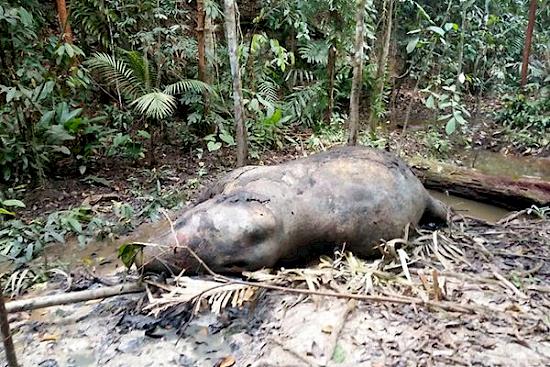大马严厉打击野生动物走私
马来西亚开展了一项保护野生动物的执法行动,查获了数十名嫌疑人,并对当地一个野生动物犯罪集团进行了洗钱调查。
该行动于9月3日开始,由马来西亚皇家警察部队和马来西亚半岛野生动物和国家公园局共同领导,以应对马来西亚的野生动物偷猎和贩运危机。
自行动启动以来的三个月中,与21例野生动植物犯罪案件有关的64名罪犯被抓到的主要是马来西亚半岛北部和东部。最大规模的行动之一发生在11月,在吉兰丹的Tok Bali缉获了642只动物。在将这批货物运往越南之前,水警扣押了100只普通棕榈科科动物,26只水监控蜥蜴和500多只运往异国肉类市场的淡水龟。一名当地人和三名越南国民被捕。
与其他案件有关的犯罪嫌疑人包括20名马来西亚人,14名来自中国,9名来自柬埔寨,6名来自孟加拉国,6名来自缅甸,4名来自印度尼西亚,3名来自泰国和2名来自越南。
龟贸易

TRAFFIC进行的一项最新发布的研究受CITES秘书处的委托,记录了在印度尼西亚,马来西亚和越南的实物和在线市场上缉获的成千上万只海龟及其部位。从2015年到2019年7月,在这三个国家中,至少有2354只活龟和死甲被查获,共发生163次执法事件。查获了91,000枚卵(在马来西亚超过75,000枚),以及近3,000枚贝壳和1枚7吨乌龟肉
在将海龟产品运往中国的过程中,越南主要是目的地市场以及中转路线。印度尼西亚主要作为来源国,缉获的货物发往中国,越南和马来西亚。马来西亚既是
印度尼西亚和菲律宾的海龟蛋的目的地国,大概是当地消费国,也是越南的海龟产品来源。对在其他地方但与这三个国家有牵连的缉获量的研究也揭示了涉及中国,法国和菲律宾的国际海龟贩运活动。由于南海的大量运输和捕鱼活动,南海被认为是非法捕捞和交易海龟的避风港。
洗钱

根据《反洗钱,反恐怖主义融资和非法活动所得法》(ALAMFTA)进行的调查源于11月19日的一起案件,其中四名当地人被认为是在狩猎和出售动物零件的背后被捕。在四个场所的突袭中,执法人员没收了动物部分,包括亚洲象牙,鹿角和各种动物皮。据信,这些动物零件将销往马来西亚和泰国,而据认为这四只动物已经运作了五到六年。
警察副监察长拿督马兹兰·曼索告诉新闻界,嫌疑人及其家庭成员的13个银行账户据报载有约39.5万美元,现已被冻结。
有关当地大象偷猎团伙的信息是最近才曝光的,2017年和2018年有11名马来西亚人被捕,据信他们被杀害了超过35只大象的for牙和其他部位。
所涉人员将面临不低于犯罪时所得价值的五倍的罚款或125万美元(以较高者为准),或一经定罪,最高可处以15年监禁。
亚洲象受到越来越多的威胁,这主要是由于栖息地的丧失,退化和破碎造成的。亚洲象比非洲表亲受到的威胁更大,数量也更少:只有雄性携带象牙,因此,任何偷猎象牙的动物都会导致性别比例出现偏差,严重影响野生种群。
